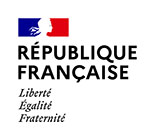You are here
Is it still possible to define the human being ?
International conference, Friday 9 and Saturday 10 November 2018, at the Muséum de Toulouse.
International conference "Human being ? An archeology of the origins" by Francis Wolff, École normale supérieure
It appears increasingly difficult to define the human being. The species’ boundaries are seemingly blurry, while the natural variations and cultural varieties within it look immense. The features specific to humans, it is said, have been a long time coming, in this age of neuroscience and advances in ethology. Nonetheless, it is not overly risky to defend a long-standing definition of humans as “rational animals”, provided that “rationality” is not seen as an intellectual virtue but an aptitude connected with language, and more specifically to dialogue, the ability to affirm and deny, to say “yes” or “no”, “I” and “you”.
Francis Wolff is Professor Emeritus of Philosophy at the École normale supérieure (Paris). He has taught Philosophy at various universities in France (Reims, Aix en Provence, Nanterre) as well as internationally (in particular the University of São Paulo, Brazil). A specialist in Ancient Philosophy, he has been built a personal work over the past twenty years around the anthropological question.
Bibliography (in french)
- WOLFF Francis, Trois utopies contemporaines, Fayard, 2018, 184 p.
- WOLFF Francis, Pourquoi la musique ? , Fayard, 2015, 458 p.
- WOLFF Francis, Notre humanité. D’Aristote aux neurosciences, Fayard, 2010, 383 p
- WOLFF Francis, Dire le monde, PUF, 2004.







